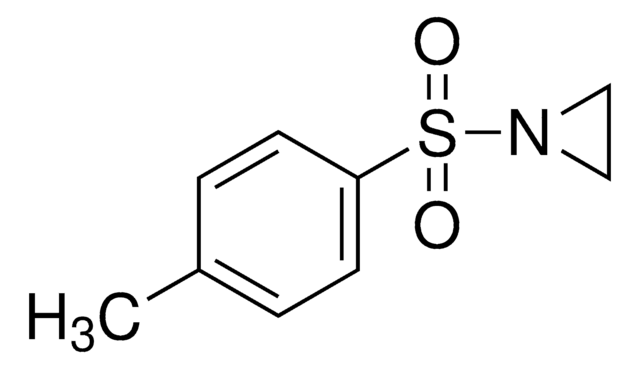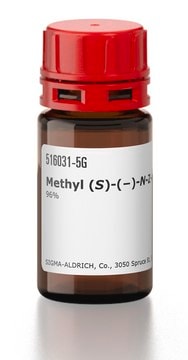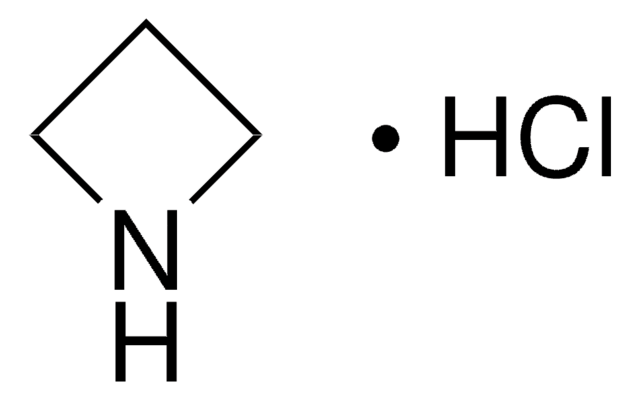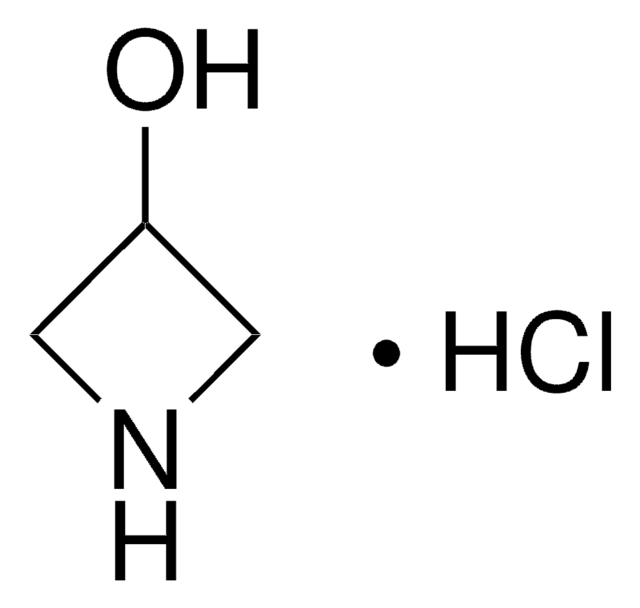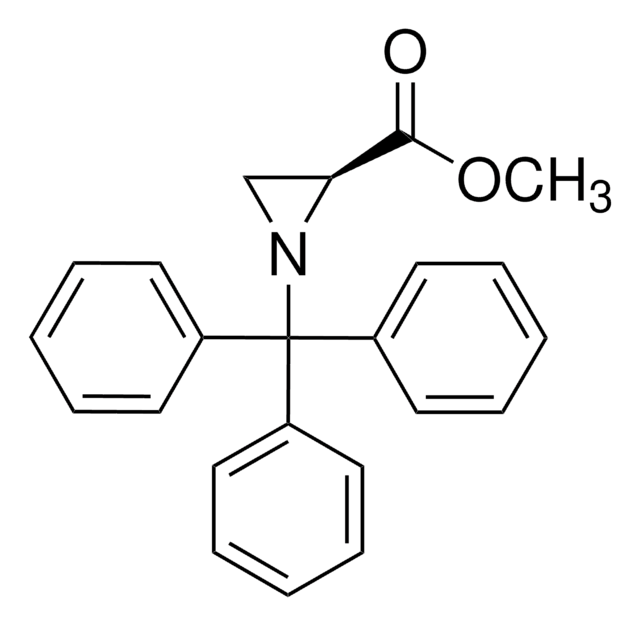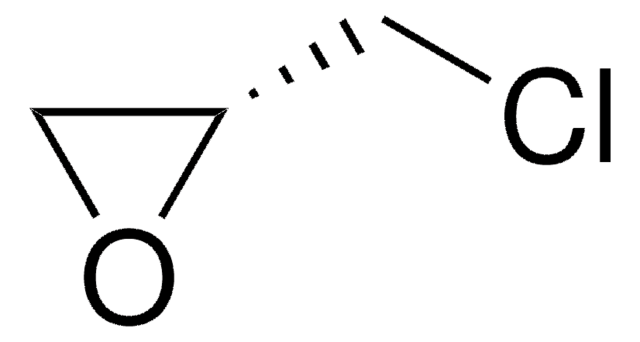294160
2-Methylaziridine
technical grade, 90%
Synonym(s):
Propyleneimine
About This Item
Recommended Products
grade
technical grade
vapor pressure
140 mmHg ( 25 °C)
Assay
90%
contains
sodium hydroxides as stabilizer
refractive index
n20/D 1.4125 (lit.)
bp
66-67 °C (lit.)
density
0.808 g/mL at 25 °C (lit.)
storage temp.
2-8°C
SMILES string
CC1CN1
InChI
1S/C3H7N/c1-3-2-4-3/h3-4H,2H2,1H3
InChI key
OZDGMOYKSFPLSE-UHFFFAOYSA-N
General description
Application
- new metallacycles and carbine complexes
- polyurethanes (thermoresponsive polymer) via copolymerization with supercritical CO2
Signal Word
Danger
Hazard Statements
Precautionary Statements
Hazard Classifications
Acute Tox. 1 Dermal - Acute Tox. 2 Inhalation - Acute Tox. 2 Oral - Aquatic Chronic 2 - Carc. 1B - Eye Dam. 1 - Flam. Liq. 2 - Met. Corr. 1 - Skin Corr. 1A
Storage Class Code
3 - Flammable liquids
WGK
WGK 3
Flash Point(F)
14.0 °F
Flash Point(C)
-10 °C
Choose from one of the most recent versions:
Certificates of Analysis (COA)
Don't see the Right Version?
If you require a particular version, you can look up a specific certificate by the Lot or Batch number.
Already Own This Product?
Find documentation for the products that you have recently purchased in the Document Library.
Our team of scientists has experience in all areas of research including Life Science, Material Science, Chemical Synthesis, Chromatography, Analytical and many others.
Contact Technical Service